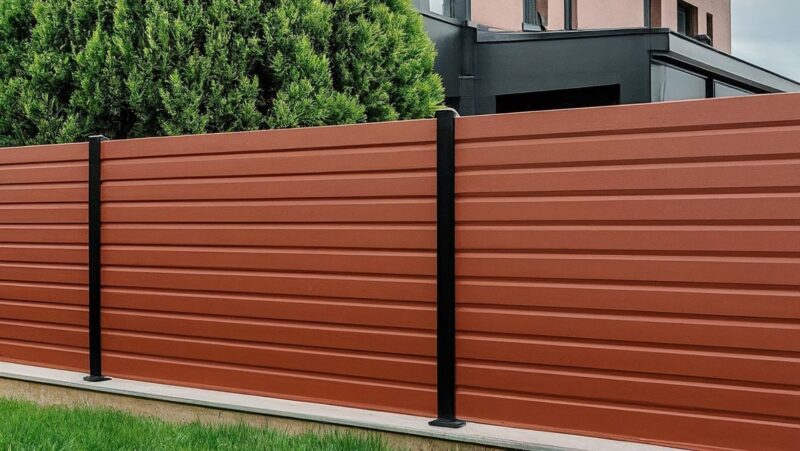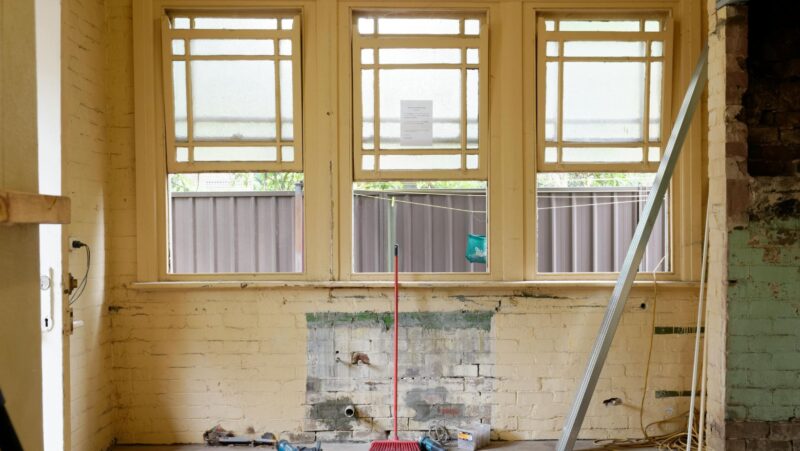Summer is coming and is expected to bring the hottest temperatures ever recorded in history. And if you live in those places where it rains when it gets extremely hot, you probably have it worse (or better?).
Either way, you need to get your home ready for the summer season.
Learning how to prepare your home for summer can be a step toward ensuring you ultimately enjoy what the season brings.
In this article, you will learn how to prepare your home by following eight simple but practical tips.
Let’s get started.
Table of Contents
Toggle1. Inspect and Clean Your HVAC System
Here’s how to prepare your home for summer 101: Ensure your HVAC (heating, ventilation, and air conditioning) system runs efficiently. A malfunctioning HVAC system can skyrocket your energy bills.
Start by inspecting the air filters and cleaning them. Clean the condenser coils as well. You can use a soft brush to remove dirt and debris. For deeper cleaning, use a coil cleaner spray specifically designed for HVAC systems. Then rinse with a gentle stream of water.
Inspect the condensate drain line for clogs that could prevent it from removing moisture from the HVAC system. You can use a wet/dry vacuum to remove any clogs. Then pour a mixture of vinegar and water through the line to clean and prevent mold and algae growth.
Lastly, check the thermostat to ensure it is functioning correctly. Replace the batteries if necessary and set the thermostat to the desired temperature for summer.
2. Check and Seal Windows and Doors
If your house is not well insulated, the HVAC system will work extra hard to keep conditioned air inside as a result of the air entering your house. This can drive up your energy costs.
Besides, the air penetrating through small cracks or gaps won’t be conditioned by your AC, which means it’ll feel warmer indoors.
To make your home energy-efficient during summer, inspect all windows and exterior doors for any signs of air leaks. Then, seal any gaps and cracks you notice.
You can use caulk or wood filler to seal leaks around window and door frames. Also, check the window panes for cracks or damages. You may replace the glass in case there are major cracks or use a glass kit to repair minor cracks.
3. Clean and Repair Outdoor Furniture
One of the greatest pleasures of summer months is this: spending time outdoors relaxing or holding family gatherings under shades or trees. Therefore, ensure your patio furniture is clean and in good condition.
Begin by checking for broken parts, rust, mildew, or any wear and tear. Depending on the type of material used, gather supplies for cleaning and repair work.
For cleaning work, you’ll need mild detergent, water, some soft brushes, a piece of cloth, vinegar, and baking soda. To repair furniture, you’ll need some sandpaper, paintbrushes, sealant, wood glue, and replacement parts (screws, slats).
4. Prune Trees and Shrubs
Pruning trees and shrubs without overdoing them allows better air circulation, which can help cool down your garden areas and even your home.
Pruning trees also helps eliminate weak or dead branches that could break off and potentially injure someone when you’re outdoors, enjoying the hot weather.

To do this, wear protective gear like gloves and safety glasses, and then use sharp pruning shears or saws to make clean cuts on trees or shrubs.
Remove dead wood from trees and low-hanging branches over walkways and driveways.
For shrubs, trim new growth lightly to ensure you maintain their natural shape. Then, dispose of or compost the cut branches and leaves.
5. Inspect and Clean Gutters
Some areas can experience heavy rainfall due to the warm, moist air brought by extreme summer heat. When this air rises, cools, and condenses into rain, it can result in heavy downpours.
If you live in these regions, you’ll need to ensure your gutters are clean and tightly attached to the house.
Clogged gutters can cause water to overflow and damage your roof, siding, and foundation. Besides, standing water in clogged gutters can attract mosquitoes and other pests, which can cause deadly diseases.
Take out your ladder, garden hose, gutter scoop or towel, a bucket or tarp to collect debris. Then, wear your gloves to thoroughly clean your gutters.
6. Enhance Outdoor Lighting
During summer, even evenings provide the ideal opportunity to enjoy outdoor activities in the backyard—whether it’s dining and entertainment or just relaxing and playing games.
However, without proper lighting, when the sun sets, your backyard can become an uninviting place. Installing proper outdoor lighting can extend the usability of your outdoor space, aside from enhancing the overall ambiance.
Strategically place lights along pathways and near entrances to improve visibility. Consider energy-efficient options like LED bulbs or solar-powered fixtures to save on electricity costs.
7. Inspect and Clean Siding
Siding plays a vital role in the insulation of your home. So, make sure you inspect it for potential damage before the summer season. If you find a replacement is due, hire a contractor that offers professional siding services. Opt for insulated vinyl siding, if you can, since it can serve as an effective heat barrier, ensuring the inside of your home is cooler in hot temperatures.
What if your siding looks just fine upon inspection? Clean it. Cleaning your siding can make it reflect sunlight more effectively, helping you save on cooling costs come summertime. Additionally, since weather conditions can accelerate the buildup of mold, algae, and mildew on siding, cleaning prevents these elements from penetrating and damaging the material.
Begin the cleaning exercise by brushing the siding’s surface dust or dirt thoroughly. Then, rinse the area with a garden hose to remove any loose dirt or debris.
Once done, mix a solution of 70% warm water and 30% white vinegar or soap.
While at it, use a soft-bristled brush or sponge to gently scrub the siding, working in sections. Avoid using abrasive cleaners or scrubbing too hard, as this can damage the siding material.
8. Prep Your Pool or Outdoor Water Features
Lastly, ensure your pool or outdoor water features are clean and safe. This is also where you and your loved ones will likely spend most of your time to beat the heat.
To clean your pool, start by removing debris, leaves, and dirt from the water and surrounding areas. Next, check and clean filters, pumps, and skimmers to ensure the water features function properly.

Don’t forget to test the pool water for pH and chlorine concentration. You want to make sure their levels are safe for use. Inspect for leaks, cracks, or damage, and make repairs if needed as well.
For water features like fountains or ponds, clean and refill them. Also, ensure the pumps are working correctly.
Get Your Home Ready for the Summer Season!
Learning how to prepare your home for summer is an art. When you master it, you can make the whole preparation process enjoyable.
The good news is that it’s not as difficult as many people think. By following these eight simple tips, you can get your home ready—and subsequently enjoy everything the summer season has to offer.





